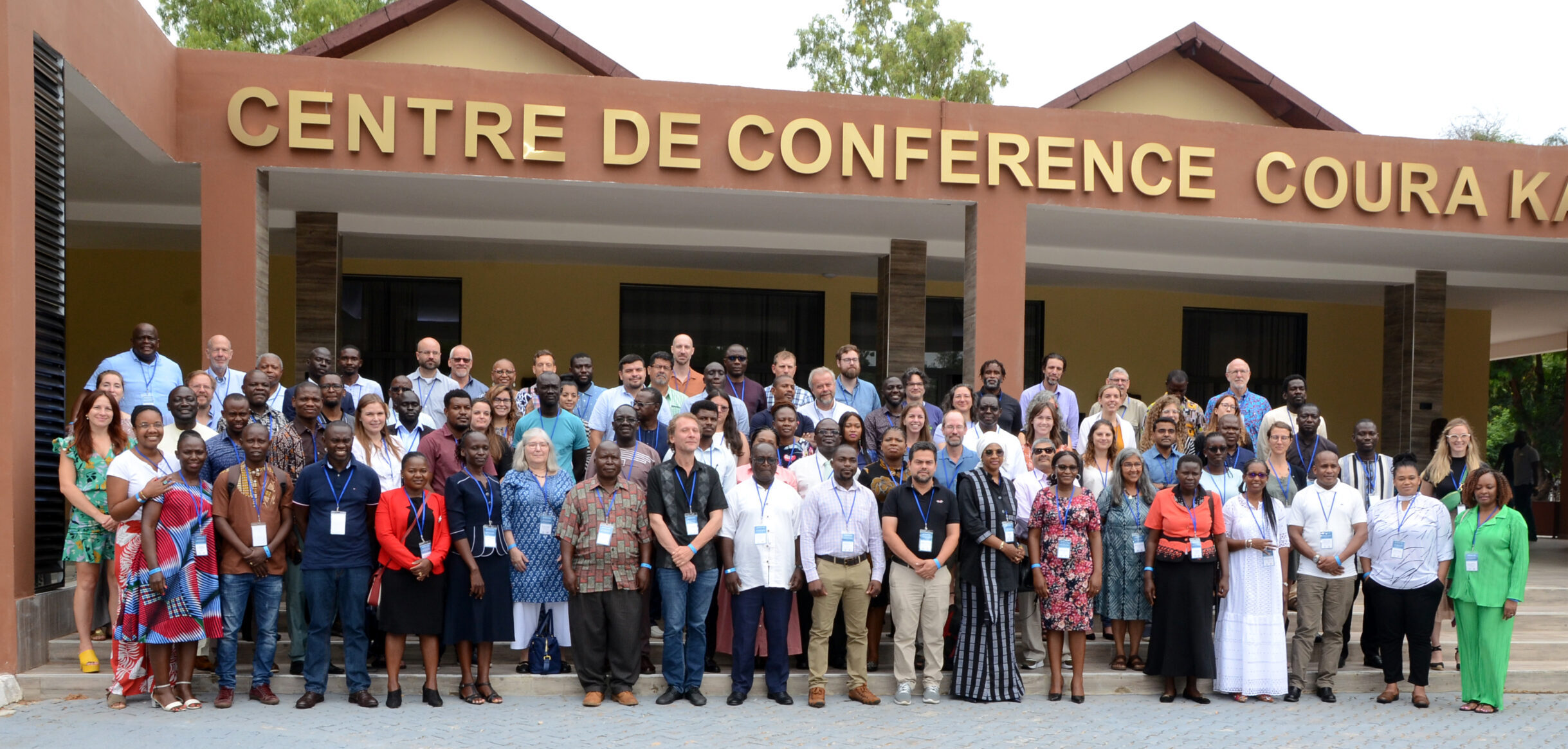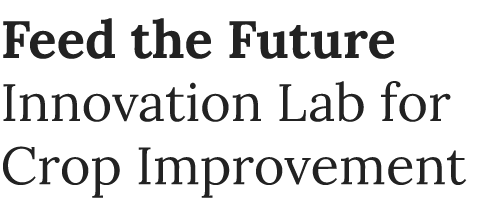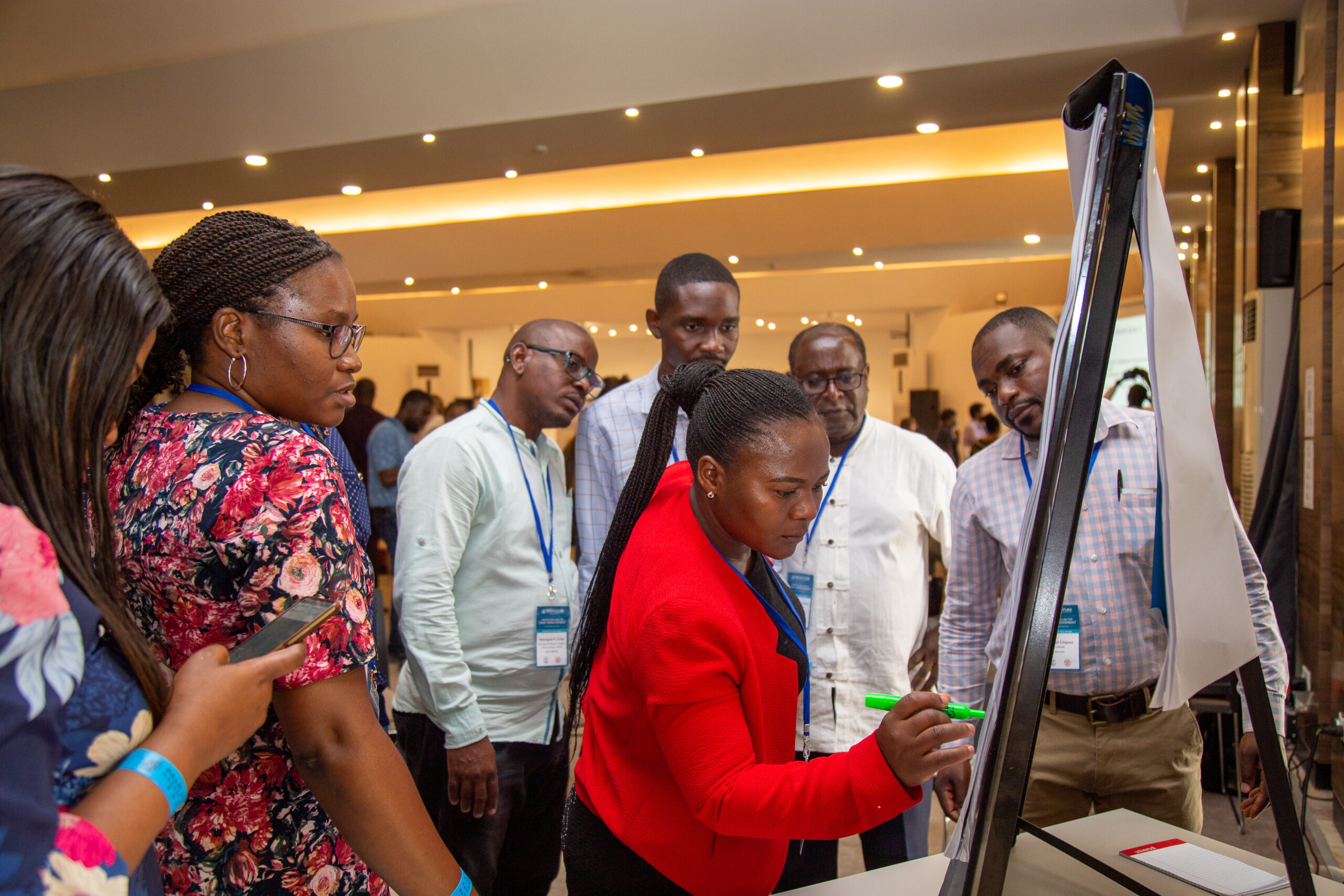A global community of more than 120 scientists and partners from more than ten countries and five continents gathered at a series of program meetings for the Feed the Future Innovation Lab for Crop Improvement (ILCI) in Saly, Senegal to better identify and solve the greatest challenges in food, malnutrition and poverty. The week-long program from October 2-8 offered a slate of dialogues, presentations, workshops, field visits, networking and more to fuel collaborative solutions for the years ahead.
As such a large, complex project that evolved during the pandemic, ILCI’s 2022 meeting provided an opportunity to showcase the innovative research and reveal accomplishments of each team, despite the many constraints the project has faced due to the Covid-19 pandemic and related lack of travel opportunities. The meetings offered a chance to collectively assess where we’ve been as a project, what is and isn’t working, and determine our path moving forward.

Center of Innovation teams drove the conversation through three “knowledge marketplace” sessions, hosting rounds of experts to talk through challenges, gaps, approaches, potential collaboration and next steps.
While each Center of Innovation runs complex programs with its own unique context-based challenges, similar experiences emerged. The first-ever cross-pollination of Centers of Innovation teams extracted common challenges, such as understanding the depth of work in other countries, digital communication and feedback loops, coordinating multidisciplinary teams online, avoiding redundancy across programs, and finding ways to work past technology challenges.
“The meetings in Saly represented an inflection point for our center,” said Roberto Camacho, principal investigator of ILCI’s Center of Innovation in Central American and Caribbean Crop Improvement Alliance (CACCIA). “The connections that we strengthened on the ground will impulsate our crop improvement research for several years to come.”
With an eye on future growth, attendees were tasked with identifying key priorities as ILCI moves into the final two years of its grant period. From phenotyping germplasm to expanding cross-cutting themes priorities based on new lessons learned, teams expressed an invigorated interest to keep collaborative linkages alive through more consistent contact and information exchange.
Throughout the program there was a strong willingness among participants to share experiences, learn from one another and re-orient research priorities, according to Sage Grasso-Monroe, a research support specialist on ILCI’s institutional capacity team.
“It has been an eye-opening experience to be involved in a meeting with enthusiastic participants who intentionally take on the challenges of interdisciplinary research by emphasizing collaboration, patience, and understanding,” said Grasso-Monroe said.
Taking advantage of the fact that our community was gathered in one place, the meeting also became a hub for capacity building. ILCI hosted 38 hours of in-person workshops over the course of the week, spanning topics from product profile clinics, to learning key tools such as R and sound research design practices, to measuring institutional capacity for plant breeding programs. A seed systems workshop co-hosted by Institut Sénégalais de Recherches Agricoles (ISRA) and Seed Systems Group explored how National Agricultural Research Institutes can best collaborate with village advisors to understand the demand of farmers and boost production and dissemination.
An 8-hour workshop hosted by ILCI’s genomics, phenomics and breeding informatics teams introduced researchers to tools the program has created using the JupyterHub programming platform. Hands-on exercises allowed Center of Innovation teams to practice with other tools and apps developed or customized by ILCI researchers, such as Field Book, Breeding Management System, R and rTASSEL.
ILCI’s 2022 meeting was made possible by the logistical and in-country support from the CIWA team at ISRA’s Le Centre d’Etude pour l’Amélioration de l’Adaptation à la Sécheresse (CERAAS). ILCI would like to express its gratitude to the whole team, particularly Ndjido Ardo Kane, Mareme Niang Belko and Kim N’jay.“We are thrilled to have hosted ILCI’s interdisciplinary community whose expertise and tools, technologies and methods and improving crops around the world,” said Ndjido Kane, principal investigator of ILCI’s Crop Innovation in West Africa (CIWA) center based at ISRA.
“We have only one objective — feed the world,” said Kane.
Attendees present represented the following institutions: AGRA, Agricultural Research Institute of Mozambique (IIAM), Clemson University, CORAF, Corteva Agriscience, Colorado State University, Cornell University, Cultural Practice, LLC, Delaware State University, Department of Agriculture Research Services, Malawi (DARS), FIPS Africa, ICRISAT, INERA, Institut Sénégalais de Recherches Agricoles (ISRA), Instituto Nacional de Innovación y Transferencia en Tecnología Agropecuaria (INTA), Integrated Breeding Platform, Kansas State University, Kenya Agricultural and Livestock Research Organization (KALRO), Lilongwe University of Agriculture and Natural Resources (LUANAR), Mahyco Private Limited (MAHYCO), India, National Root Crops Research Institute (NRCRI), National Semi-Arid Resources Research Institute (NaSARRI), Uganda, Purdue University, Quisqueya University, RTI International, Seed Systems Group, Sokoine University of Agriculture, Tanzania Agricultural Research Institute (TARI), Tuskegee University, University of California, Davis, and the U.S. Agency for International Development.




